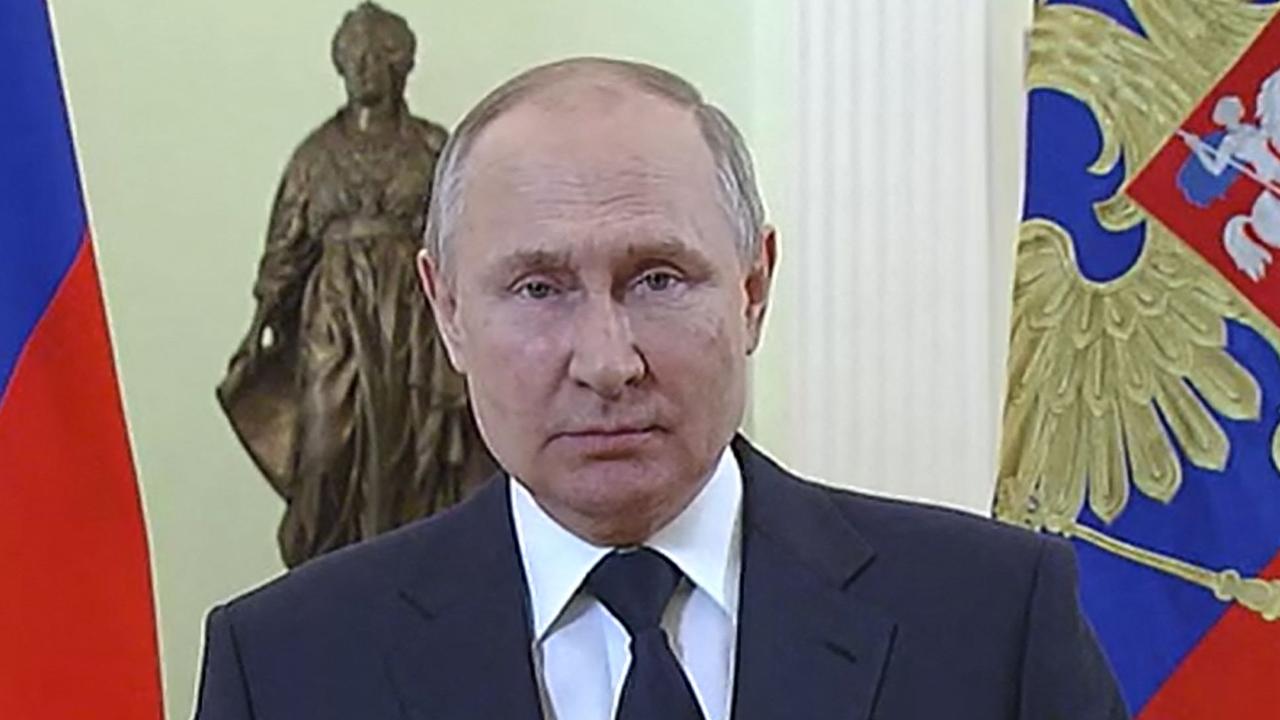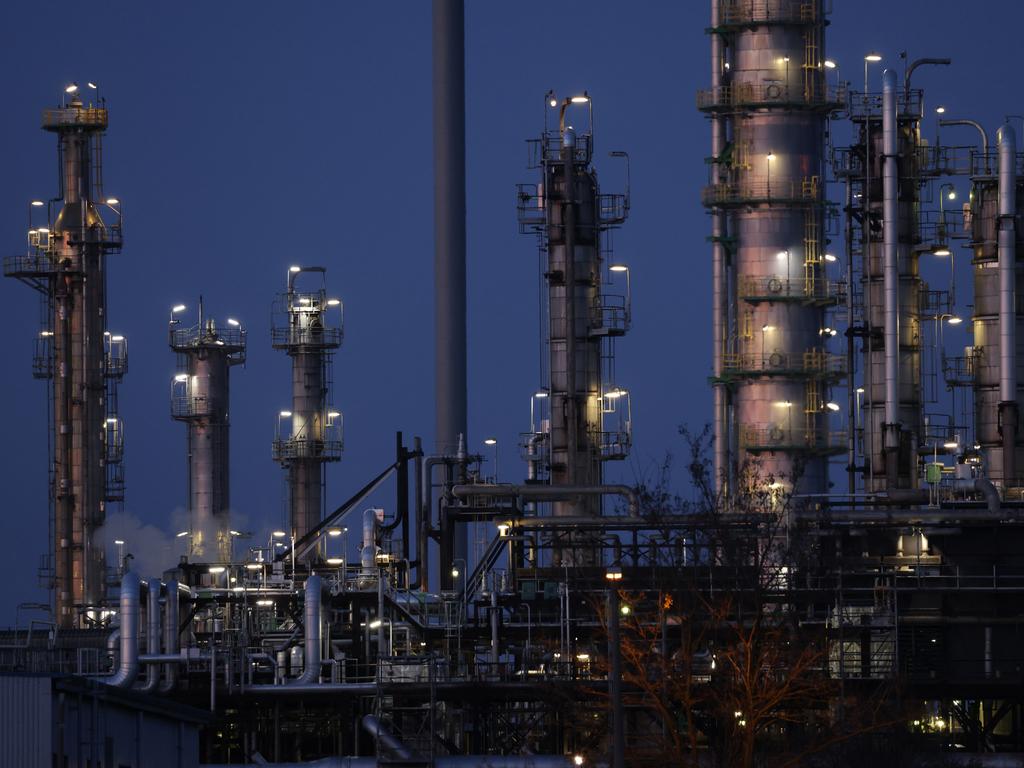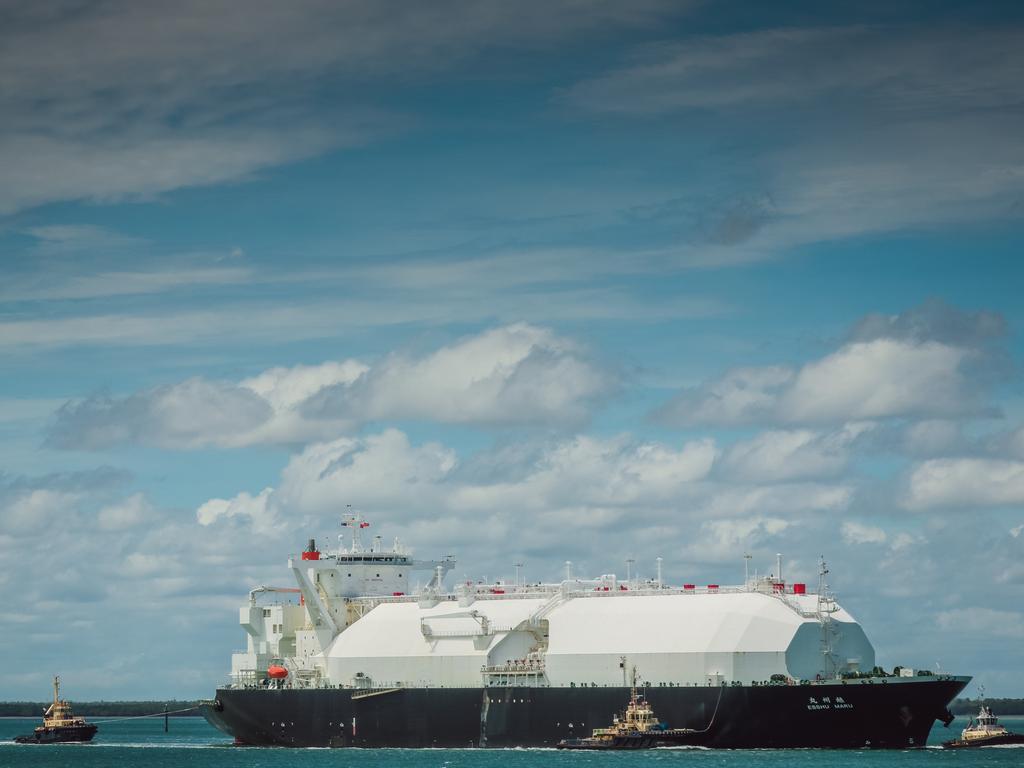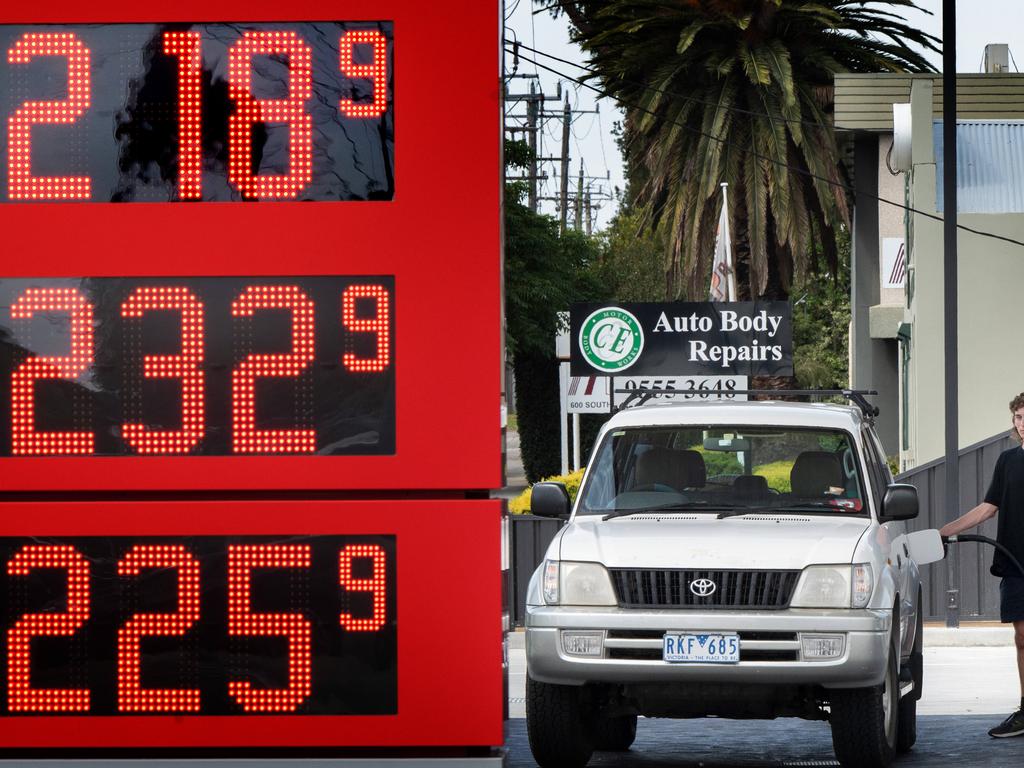Will Russia’s demand for gas payments in roubles affect oil prices?
Vladimir Putin has roiled markets with a bombshell demand to countries buying Russian gas – here’s what it could mean for you.
Vladimir Putin’s announcement that Russia will demand payment for its natural gas in roubles has shaken energy markets and raised fears of further supply shocks.
The Russian President said on Wednesday the country would now only accept payments in roubles for gas deliveries to “unfriendly countries”, which include all European Union members, the US, Great Britain, and Australia, after Moscow was hit by unprecedented sanctions over Ukraine.
Immediately after his announcement, the rouble — which has plummeted since the start of the Ukraine conflict — strengthened against the dollar and euro, while gas prices rose.
“I have decided to implement a set of measures to transfer payment for our gas supplies to unfriendly countries into Russian roubles,” Mr Putin said during a televised government meeting.
He added, however, that Russia will continue supplying the volume of gas outlined in its contracts.
Mr Putin ordered Russia’s central bank to implement the new payment system within a week, saying it must be “transparent” and will involve the purchase of roubles on Russia’s domestic market.
He also hinted that other Russian exports may be affected.
Stream more finance news live & on demand with Flash. 25+ news channels in 1 place. New to Flash? Try 1 month free. Offer ends 31 October, 2022 >


Could oil be next?
Oil prices also spiked sharply on the news, and markets were further roiled by an unrelated announcement from Russia that supply of up to one million barrels of oil per day – about 1 per cent of global consumption – would be halted as a result of weather damage to a major Black Sea oil export terminal.
Experts say Russia, which produces about one tenth of the world’s oil, could soon demand roubles for oil payments as well.
“For Russia gas is more important than oil,” said Vivek Dhar, director of mining and energy commodities research at Commonwealth Bank.
“Europe is dependent on Russia for about 40 per cent of its consumption of gas, for oil it’s more like 25 per cent. Could oil be next? If you cross the line with this then oil is easier to do. But in terms of what we’ve seen so far, the question is, is this even possible in the existing contracts?”
Germany, Italy and Austria have already said they will not pay for Russian gas in roubles, with fears looming disputes over contracts could interrupt supplies.
“If Gazprom refuses to deliver gas when buyers pay their invoices in the original contract currency, usually euros, buyers may bring the case to arbitration,” Anise Ganbold, an analyst at Aurora Energy Research, told Bloomberg.
“If you’re invoiced in roubles, you’ve got to go out and buy roubles,” Claus Vistesen, chief eurozone economist at Pantheon Macroeconomics, told The New York Times. “I don’t know if there is a workaround.”
Mr Dhar said Russia had been “very careful” so far to ensure gas flows to Europe were as reliable as possible, and the key question markets are now grappling with is whether Russia would cut off supply.
“They want to maintain that reputation of being reliable suppliers of gas,” he said. “I think they’ll show restraint, but it’s not something you can say with high conviction.”

Gas prices spike
For Australia, the more immediate impact of Mr Putin’s announcement could be via LNG spot prices into North Asia.
“European gas prices are competing with North Asia’s,” Mr Dhar said. “For Australia, around one quarter of our LNG exports are linked to the LNG spot price.”
ANZ Research analysts Brian Martin and Daniel Hynes noted North Asian LNG futures were steady overnight with buyers returning to the spot market despite high prices.
“India, one of the most price sensitive buyers in the market, purchased several LNG shipments for March to June delivery,” they wrote.
“Tohoku Electric was also active, as it seeks to replace lost coal-fired power generation. Japan is also suffering through another power shortage, following outages at power plants following the earthquake.”
‘Different ballgame’
While Russia’s latest threat will have little direct impact on Australia in the short term, it’s another sign that the unprecedented shake-up of global energy markets is set to continue.
“When all of this started happening, it was the financial market that raised concerns – are we going to see a freezing of five million barrels of oil a day in a market that’s already tight?” Mr Dhar said.
On top of Russia’s five million barrels of crude per day, it also produces three million barrels in refined products.
“We have seen a number of cargoes already frozen,” he said.
“Around 60-70 per cent of those flows have been impacted already by banking and finance sanctions. Any seaborne trade now (struggles to get) trade financing, no banks want to get involved.”
Mr Dhar said as global oil stockpiles dwindle, “eventually we’ll see physical markets react, that could lead to another bout of price volatility”.
“Right now the knee-jerk reactions from the financial markets (in response to) the invasion and sanctions, followed by easing concerns amid hopes of a diplomatic solution – that’s all volatility you expect from financial markets. But once the physical market hits, it’s a different ballgame.”
While some analysts have previously suggested oil could hit $US200 per barrel, CommBank is eyeing $US150.
“In our view, if we do see prices spike $US150 is probably the level to look at,” Mr Dhar said, adding that $US200 was “certainly possible”.
“At these price levels it’s difficult to get a grasp, but generally speaking demand destruction is going to be the main corrective force.”

Ukraine calls for oil embargo
Ukraine was quick to denounce Russia’s “economic war” on the EU and its efforts to “strengthen the rouble”.
“But the West could hit Russia with an oil embargo that would cause the Russian economy to plunge,” Ukrainian presidential advisor Andriy Yermak said on Telegram. “This is now a key economic battle, and the West must collectively win it.”
German Economy Minister Robert Habeck, whose country imported 55 per cent of its natural gas from Russia before the conflict, said Putin’s demand was a breach of contract and that Berlin will discuss with European partners “how we would react to that”.
Austria’s OMV energy company said Wednesday that it would still keep paying for Russian gas in euros despite the announcement.
“We don’t have any other basis for the contract. I wouldn’t be able to do otherwise,” OMV CEO Alfred Stern told Austrian television.
Italy, the second-biggest customer of Russian gas, also rejected the request.
“My view is that we pay in euros because paying in roubles would be a way to avoid sanctions, so I think we keep paying in euros,” Prime Minister Mario Draghi’s economic adviser Francesco Giavazzi said at a Bloomberg conference in Milan.
Crippling sanctions
Western countries have piled crippling sanctions on Moscow since it moved troops into Ukraine.
The West froze some $US300 billion of Russia’s foreign currency reserves abroad, a move that Foreign Minister Sergei Lavrov on Wednesday described as “theft”.
But while the United States banned the import of Russian oil and gas, the EU — which received around 40 per cent of its gas supplies from Russia in 2021 — has retained deliveries from Moscow.
Brussels, however, has set a target of slashing Russian gas imports by two-thirds by the end of the year and is eyeing an oil embargo.
“Russia is now trying to pressure the West with counter sanctions — and reduce its dependence on foreign currencies,” Swissquote senior analyst Ipek Ozkardeskaya told AFP.
Russia ditches the dollar
Russia has been moving to “de-dollarise” its economy for years, since the introduction of Western sanctions over its annexation of Crimea from Ukraine in 2014.
In March 2019, the Russia state energy giant Gazprom announced its first sale of gas for roubles to an unnamed western European company.
Deputy Prime Minister Alexander Novak said Wednesday a shift to trading in the national currency would “increase reliability”.
He warned that a full embargo on Russian oil and gas would lead to a “collapse” of the global energy markets and “unpredictable” spikes in prices.
Analyst Timothy Ash of BlueBay Asset Management said, however, that it was “hard to see Putin’s move as rouble positive”.
Mr Ash said Mr Putin is essentially trying to force Western countries to trade with Russia’s central bank, which they have sanctioned.
“It will just accelerate diversification away from Russian energy,” he added.
According to investment group Locko Invest, the countries declared “unfriendly” by Russia account for more than 70 per cent of Russia’s energy exports in terms of earnings.
The group also highlighted the danger for Gazprom of running out of foreign currency to honour its debts in the future.
More Coverage
But Andrew Weiss of the Carnegie Foundation said Mr Putin “definitely knows how to build and exploit leverage”. “Putin has routinely used escalation in such situations to up-end his opponents’ best-laid plans. No reason to doubt that that’s changed,” Mr Weiss said on Twitter.
— with AFP





